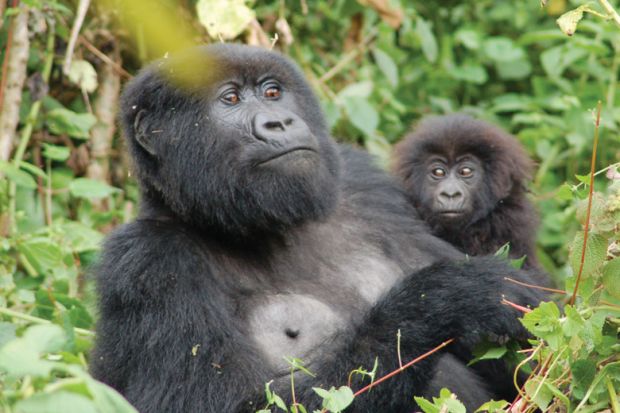Much of this extraordinary book will ring bells with researchers. Sociologist Christena Nippert-Eng aims to address the beginning researcher, and the exercises she offers provide helpful encouragement and useful reassurance to those confronted with some of the basic problems of selecting material to be studied, the formulation of concepts, and the development of research hunches.
However, the approach she advocates is hugely problematic. There is no place in this text for what subjects say, although this is perhaps understandable in the circumstances. Nippert-Eng’s programme of exercises is focused entirely on the physical activities of subjects in her studies of mountain gorillas in a zoo setting. She argues that these same methods can be applied to human subjects, albeit in a similarly constrained and limited setting. This view seems to be linked to her ethical and moral convictions about the welfare and status of animal species. Throughout the text, there are calls for better animal welfare and protection – for example, the removal of round-the-clock lighting in buildings to safeguard birds flying into windowpanes.
The use of background theory here is piecemeal, suggesting a poorly framed epistemology. Most issues related to background theory actually go unconsidered, even though the text is otherwise pitched at the level of an absolute beginner. (How often do such texts contain recommendations on the use of particular kinds of pencils or pens?) Nippert-Eng’s conviction is that her variety of analysis, although illustrated with animal behaviour, is actually a form of analytical sociology in the tradition of the eminent sociological analysts Howard Becker and Erving Goffman. Nevertheless, the analysis here – and the exercises around which the text is constructed – remains firmly focused on the methods and data from the observation of animals in a zoo-based gorilla group and, in particular, a dominant male named Kwan and a number of females.
Nippert-Eng makes two interesting claims for this approach. The first, that this is a variety of analytical sociology, suggests an argument for a unified approach to studies of animal behaviour and of human action. Alongside this, she argues for the possibility of fitting such methods into the concerns of consumer-focused design activities, such as consumer product development, architecture and so on. But both of these claims seem difficult to sustain. One of the problems faced by anyone trying to teach methods is the widespread and misguided conviction that anyone can do it, and that data of whatever kind are easily gathered and readily applicable to whatever purpose one wishes to frame. Nippert-Eng ignores both the real differences between animal and human subjects, and the kinds of data that can actually be gathered to offer insight and explanation. But in a text where an encounter between Kwan and one of the main females, Joan, is rendered as a victory for gorilla sisterhood over chauvinism, this may not be unexpected.
Happily, I was able to conduct a telephone interview with the three individuals concerned to verify Nippert-Eng’s analysis. Kwan argued that the account misrepresented what he claimed to be his new, more enlightened relationship with his mates. The females involved denied that any such change had occurred in what they described as “typical mountain gorilla sexism”.
Les Gofton is teaching fellow in sociology, Durham University.
Watching Closely: A Guide to Ethnographic Observation
By Christena Nippert-Eng
Oxford University Press, 296pp, £47.99 and £11.99
ISBN 9780190235512 and 5529
Published 12 November 2015
Register to continue
Why register?
- Registration is free and only takes a moment
- Once registered, you can read 3 articles a month
- Sign up for our newsletter
Subscribe
Or subscribe for unlimited access to:
- Unlimited access to news, views, insights & reviews
- Digital editions
- Digital access to THE’s university and college rankings analysis
Already registered or a current subscriber?




